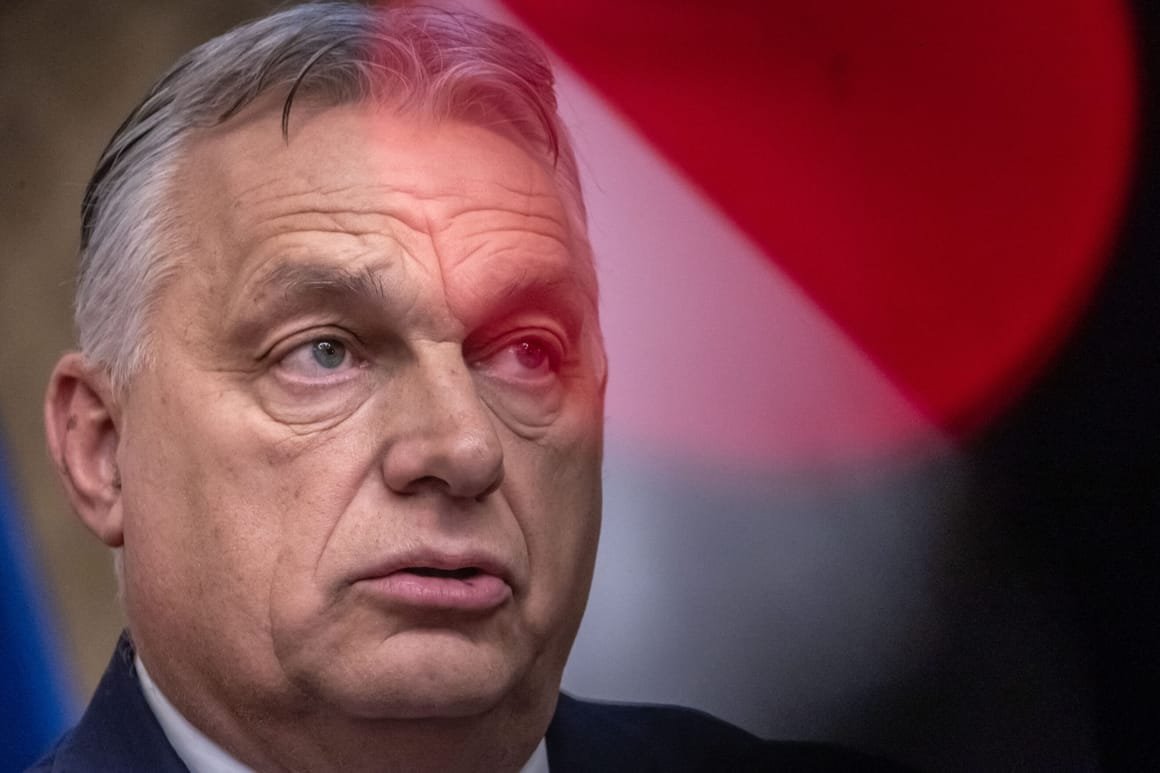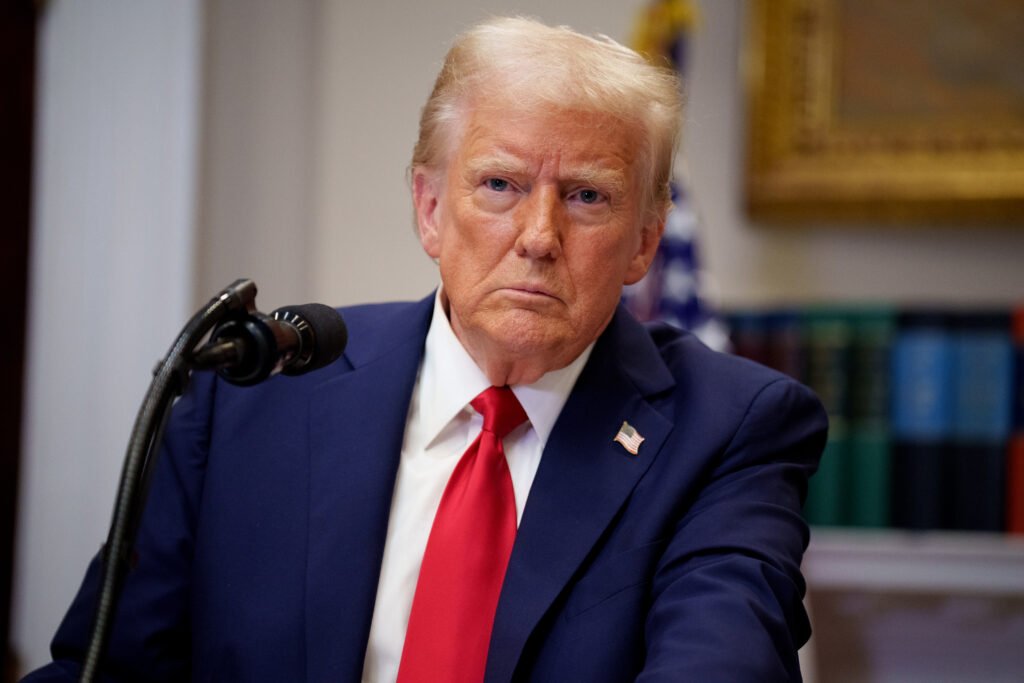Viktor Orbán has flirted with killing the EU’s Russia sanctions. But he didn’t get the ally he might have expected in Donald Trump.

BRUSSELS — Hungary is expected to back down from its threat to block the EU from renewing its Russia sanctions after U.S. President Donald Trump menaced Moscow with even more penalties, according to five diplomats familiar with the talks.
In recent days, Hungary has been publicly toying with the possibility that it would refuse to reauthorize the EU’s Russia restrictions — a step all 27 EU countries must take every six months. The penalties cover everything from severe trade restrictions to freezes on almost €200 billion in sovereign assets.
“The time for change has come!” Hungarian Prime Minister Viktor Orbán proclaimed on Tuesday.
In addition to his typical arguments that the measures are damaging the EU’s economy, Orbán has also been saying the EU must wait to see how Trump would approach Russian sanctions before taking action.
On Wednesday, Orbán got his answer via an unexpectedly bellicose Truth Social post.
Russia, the U.S. president said, must “STOP this ridiculous war.” If it didn’t, he added, “I have no other choice but to put high levels of Taxes, Tariffs, and Sanctions on anything being sold by Russia to the U.S.”
By Thursday, diplomats in Brussels sensed Hungary was ready to drop its veto threat, based on its shifting rhetoric behind closed doors. According to two of the diplomats, Hungary’s representative in meetings on Thursday said his country had yet to make up its mind on the renewal — a marked departure from Orbán’s more oppositional public rhetoric.
“I think Hungary should rather check back with their U.S. hero,” said one EU diplomat with knowledge of the talks, who like others was granted anonymity to speak freely. “He seems to be very much in favor of sanctions against Russia.”
Tick tock
The development comes just ahead of a pivotal meeting on Friday, when officials from the 27 EU countries will try to rubber stamp the reauthorization. Formally, officials have until Jan. 31 to renew the sanctions. The EU is also looking to heap fresh sanctions on Russia in the coming weeks.
“When it comes to the roll-over of sanctions, Orbán said he wanted to wait for the inauguration in the U.S. That happened,” said a second EU diplomat. “Trump’s messages were actually clear after [the demand to Putin]. So why would Orbán derail it?”
A third diplomat said the consensus among their colleagues is that the sanctions will have a “normal adoption process” on Friday — meaning they will be renewed without incident — but cautioned that an unexpected block “can still be done on the spot.”
If the penalties aren’t reauthorized on Friday, the EU’s foreign ministers can take up the issue on Monday, when they are set to gather in Brussels to discuss their Russia policy with Trump back in office.

If the EU blows past the final deadline without a reauthorization, the most immediate consequence would be that Russia’s frozen funds ― most of which are held by the Belgium-based deposit Euroclear ― would flow back to the Kremlin.
Two officials with knowledge of the proceedings said there is no backup plan to avert this scenario. They dismissed speculation that Belgium could use an 81-year-old decree allowing the country’s monarch to block the transfer of assets to another country.
“This is Netflix. It’s not real life. It’s never been put on the table,” said one of the officials, arguing that Euroclear, a private firm, holds the funds — not the Belgian state.
A longer-term sanctions pause may also affect the EU’s goal to quit Russian energy imports.
“If Hungary blocks the renewal of these energy sanctions, it would reverse significant progress in strengthening energy security within the bloc and betray its allies in Ukraine,” said Isaac Levi, a Russian energy specialist at the Center for Research on Energy and Clean Air think tank.
Hungary could also face blowback if it topples the EU’s sanctions regime. A separate official said the EU could reject the country’s multi-year spending program — a crucial document setting out the country’s expenditure path over the next four years. The plan is up for approval in February.
« I don’t expect” Hungary to block the renewal, said another of the five diplomats following Thursday’s discussions. “Hungary lets the temperature rise, but if they drop the sanctions, things will explode over here.”



